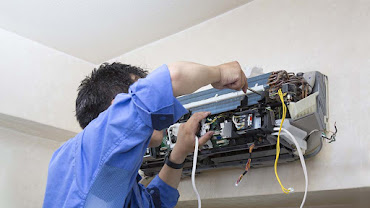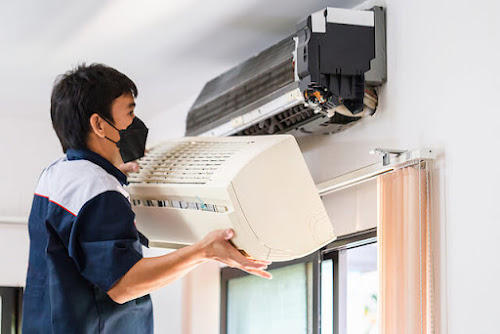Emergency Aircon Repairs: What to Do When It's Hot!
Introduction
When the scorching heat of summer bears down on us, there's nothing more distressing than having your air conditioning system suddenly fail. Sweating it out in a hot and stuffy home is far from ideal. That's why it's crucial to be prepared for emergency air conditioner repair Adelaide. In this comprehensive guide, we'll walk you through the steps to take when your AC goes kaput on a sweltering day. From troubleshooting to seeking professional help, we've got you covered.
Troubleshooting Common AC Issues
Assess the Situation
The first step in dealing with a malfunctioning AC is to assess the situation. Check if it's a complete system failure or if certain rooms are still receiving cool air.
Check the Thermostat
Ensure that your thermostat is set to "cool" and at the desired temperature. Sometimes, the issue may be as simple as a thermostat setting.
Inspect the Air Filter
A clogged or dirty air filter can restrict airflow, causing your AC to work inefficiently or even shut down. Regularly replace or clean your air filter.
Examine the Circuit Breaker
If your AC isn't turning on, check the circuit breaker. A tripped circuit breaker can disrupt power to the unit.
Listen for Unusual Sounds
Unusual noises, such as grinding or squealing, can indicate mechanical issues within the AC unit. Turn off the system and call a technician if you hear these sounds.
DIY Solutions for Minor Problems
Cleaning the Condenser Coils
Dirty condenser coils can hamper your AC's performance. Learn how to safely clean them to improve efficiency.
Clearing Debris Around the Outdoor Unit
Leaves, debris, or overgrown vegetation around the outdoor unit can obstruct airflow. Keep the area around your AC clean.
Replacing a Faulty Capacitor
If your AC's fan isn't working, it could be due to a faulty capacitor. Learn how to identify and replace a malfunctioning capacitor.
When to Call a Professional
Freon Leaks
Handling refrigerant is dangerous and requires a licensed technician. If you suspect a Freon leak, don't attempt to fix it yourself.
Electrical Issues
Any electrical problems with your AC system should be left to the professionals. Attempting DIY repairs can lead to serious safety hazards.
Compressor Problems
The compressor is the heart of your AC system. If it fails, you'll need a skilled technician to assess and repair it.
Conclusion
In the scorching heat of summer, a malfunctioning AC can be unbearable. By following these troubleshooting steps and knowing when to call in the experts, you can ensure a comfortable living environment even during the hottest days.
FAQs
Q1: How often should I replace my AC filter?
A1: It's recommended to replace or clean your AC filter every 1-3 months, depending on usage and filter type.
Q2: Can I use a fan as a temporary solution if my AC breaks down?
A2: Yes, a fan can help circulate air, but it won't provide the same level of cooling as an AC. It's a temporary solution until repairs are made.
Q3: Is it normal for my AC to make noise?
A3: Some noise is normal, but loud or unusual sounds may indicate a problem. It's best to have it checked by a professional.
Q4: How can I prevent AC issues in the first place?
A4: Regular maintenance, such as cleaning filters and annual inspections, can help prevent many AC problems.
Q5: What's the average cost of emergency AC repairs?
A5: The cost can vary widely depending on the issue. Minor repairs may be affordable, but major problems like compressor replacement can be costly.


Comments
Post a Comment